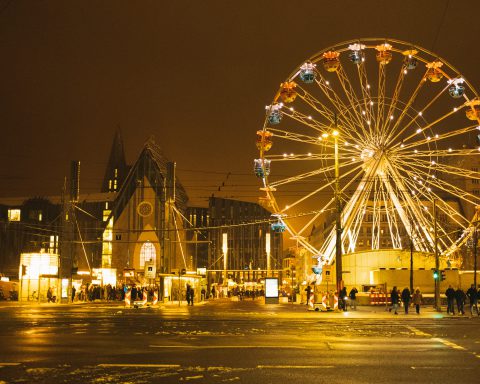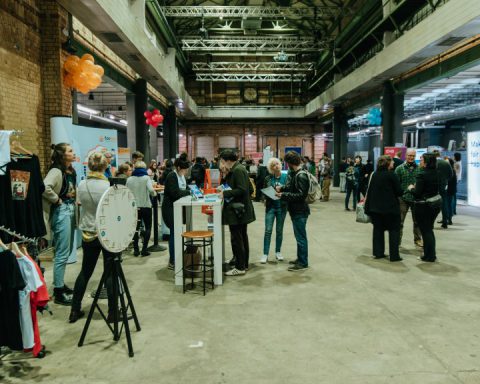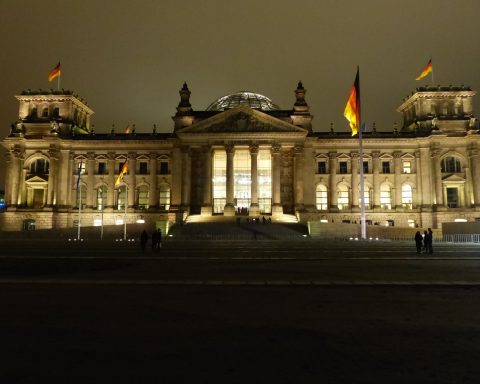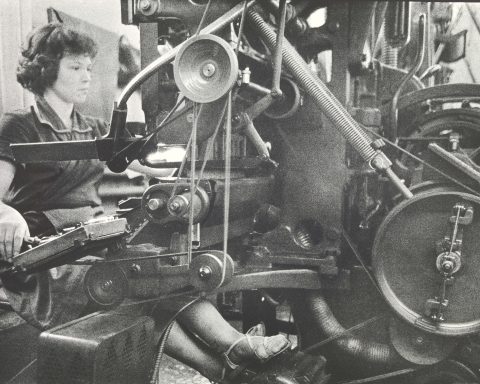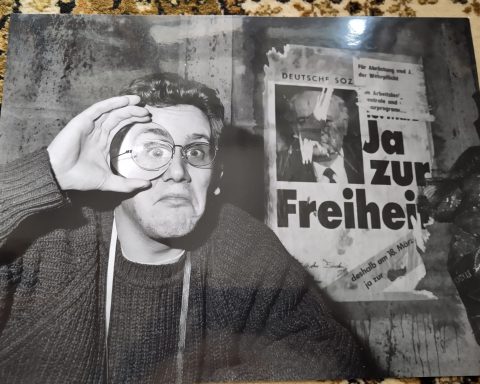“The Great Sheikh” was the nickname of Heinrich Leberecht Fleischer. More than half a century, from 1835 until his death in 1888, he taught oriental languages at Leipzig University and made it the Western world’s leading center of Semitic languages. And he was not Leipzig’s only academic superstar – there were many more. I will not list them, but a quick glance at the Leipzig street names might be a good place to start for the curious.
I arrived in the city early in October to look, amongst other things, at the correspondence of the Great Sheikh. It goes without saying that this historical background gave me an unconscious idea of Leipzig that was, to put it mildly, a little outdated. Thinking of Leipzig I thought of learned middle-aged men, feverishly working printers and book publishers, and a gallant beau monde.
Of course my first impressions did not fit these prejudices. I found that the train station was the entrance to a mall that lacked all nineteenth century charms. Parts of the old city center turned out to be disfigured by a graceless casino and another mall. On my daily walk I pass the writings on the wall: “coplover;” “milfhunter;” “beer boy.” Good old Fleischer, though a linguist of renown, may have understood the first and last expressions (according to our friends at Wikipedia, the word “cop” can be traced back at least to 1704), but the middle one would not have made any sense to him.
Times seemed to have changed and I should have known: It is not as if history has stood still here between 1910 and 2010. Fleischer’s name alone should have been enough of a hint. Though most parents still want their children to “live right”, no parents would still seriously consider naming their little boy “Leberecht”.
Still, the more I walk through the Leipzig streets, the more the past comes back into view.
Last week I sat down at the Markt in front of the old town hall. The building is pretty, but what struck me after a few minutes, is that most of the other buildings around the square have higher frontispieces with much more exuberant ornaments than the old seat of municipal power. Never having been the capital of its country, Leipzig must have been a city of citizens rather than a city of nobility and state bureaucracy, I figured, and at the Markt this past subtly shines through.
This is of course a misconception. The differences between the old town hall and the neighboring buildings most likely have to do with the fact that these other buildings were built some centuries after the sixteenth century town hall. Architectural customs and fashion had changed by then and a new town hall was built that easily outshines every building at the Markt. Still, this new town hall from the early twentieth century is embellished with a pig’s and hippo’s head, both of which rarely figure in the coats of arms of any serious noble family.

And then there is the bookmaking. This is a proud part of Leipzig’s past and it still discretely shows in the city’s second-hand bookstores. I have been in bookstores in a number of cities around Europe and I dare to attest that it is not all that common that most antiquarian bookshops have a subsection dedicated to books about book publishing. (Which I prefer, by the way, to a certain Bielefeld bookstore with a full Dr. Oetker subsection.. And all in all Leipzig does seem to honor the classic German authors. I’ve spotted statues of Goethe and Schiller, so the only missing main member of the nineteenth century German literary pantheon seems to be Wilhelm Shakespeare.
After these words about the past shining through, I’d like to end these musings with an apology to the present. Reading back, I notice that I forgot to say any well-deserved kind words about today’s Leipzig. I apologize, and if you excuse me, I am off now to a meet a young and vibrant city.
Chris Engberts is currently staying two months in Leipzig doing research for his history-related PhD at Leiden University. Besides spending much of his time discovering the East German city’s historical gems on foot and juicy letters from dead scholars in the archives (really), he is a music enthusiast.


